Learn by Doing Program: First year
This approach is reflected in the motto adopted from the institution's inception: Learning-Doing, encapsulated in the Latin expression "Labor Omnia Vincit" (Work Conquers All).
Since its inception, Zamorano has been guided by the constructivist approach in its educational model, led by Wilson Popenoe, our first director. This theory of learning holds that our students construct knowledge through direct experiences, hands-on work, and social interaction with their environment.
The emphasis on experiential learning allows not only to acquire knowledge, but also to develop values and skills in an active way, either individually or in collaboration with others.
This approach is reflected in the motto adopted from the institution's inception: Learning-Doing, encapsulated in the Latin expression "Labor Omnia Vincit" (Work Conquers All).
A-Transversal Knowledge Modules
They are the basis for the different value chains, offered by specific departments and applied along them.
B-Value Chain Modules
They are part of the value chains and are offered by the corresponding departments according to their areas of focus.
C-Integral Modules
Value chains conclude their last step and prepare to offer and manage products in the market.
Contact us
Génesis Bautista
gbautista@zamorano.edu
cel: +504 9905-6181
Paola Andino
pandino@zamorano.edu
cel: +504 9910-8802
FIRST YEAR MODULES
Module: Plant Propagation
Description and general objective of the module:
The Plant Propagation module is a theoretical-practical learning space that induces the student in the process of plant production. It consists of the sections of eedling production, plant propagation and the commercialization nursery. Activities are carried out from plant propagation to the commercialization of the finished product, thus closing the production chain.
At the end of the module, students will be able to know, describe and manage the resources to put into practice the methods of plant propagation through sexual and asexual techniques, incorporating the knowledge of propagation for the multiplication of ornamental, vegetable, fruit and forest plants.
- Reproduce seedlings in a sexual way considering sanitation practices, hygiene and seed quality to introduce and contribute with plant production technologies to producers in their different scales.
- Reproduce plants asexually, using different propagation techniques (cuttings, layering, grafting) and their physiological bases to ensure the quality of ornamental production.
- Prepare media/substrates considering their theoretical bases and quantity of necessary raw material, to generate optimal conditions in the production of plants to compete must have 4 principles: verb, conceptual object, purpose and quality consideration.
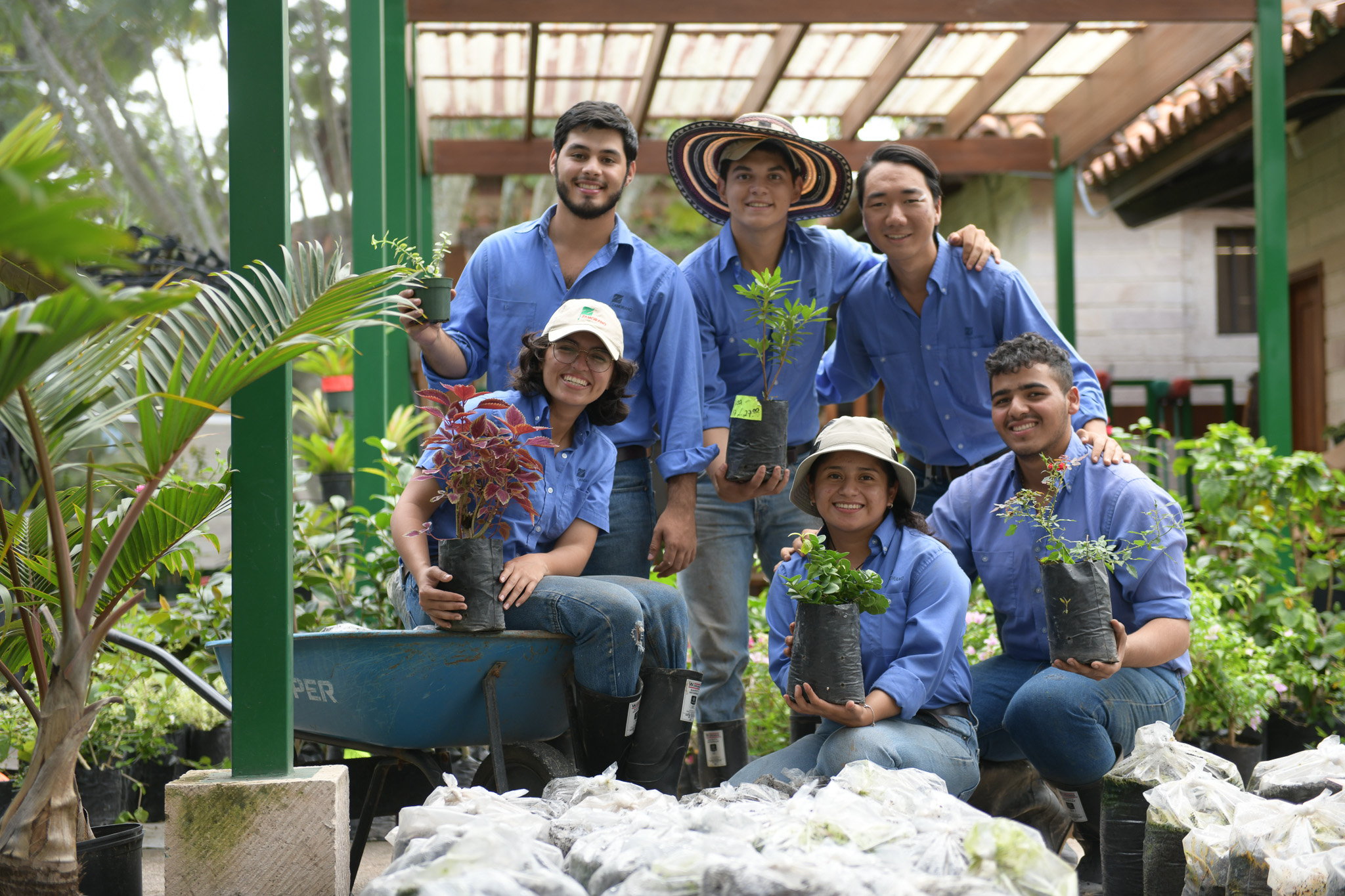
Module: Seed Plant
Description and general objective of the module:
In this module, students carry out activities related to the processing of genetically modified seeds and conventional seeds of both open-pollinated varieties and hybrids of basic grains, mainly corn, beans and sorghum. Our students learn about good occupational safety practices and plant process flow. The contents of the module are developed throughout the weeks that it lasts and not necessarily in sequential order.
At the end of the module, the student will have acquired knowledge for the application of basic techniques for the processing and conditioning of basic grain seeds.
- Apply the principles and regulations of Health and Safety to perform daily activities safely in a Seed Plant.
- Describe the process flow for the conditioning of conventional and genetically modified seeds in a seed plant, in order for the student to develop the basic knowledge of this process.
- Analyze the quality and production processes of a transnational company that implies knowing the legal and physiological quality requirements (germination and vigor) so that the student can apply them in any seed plant.
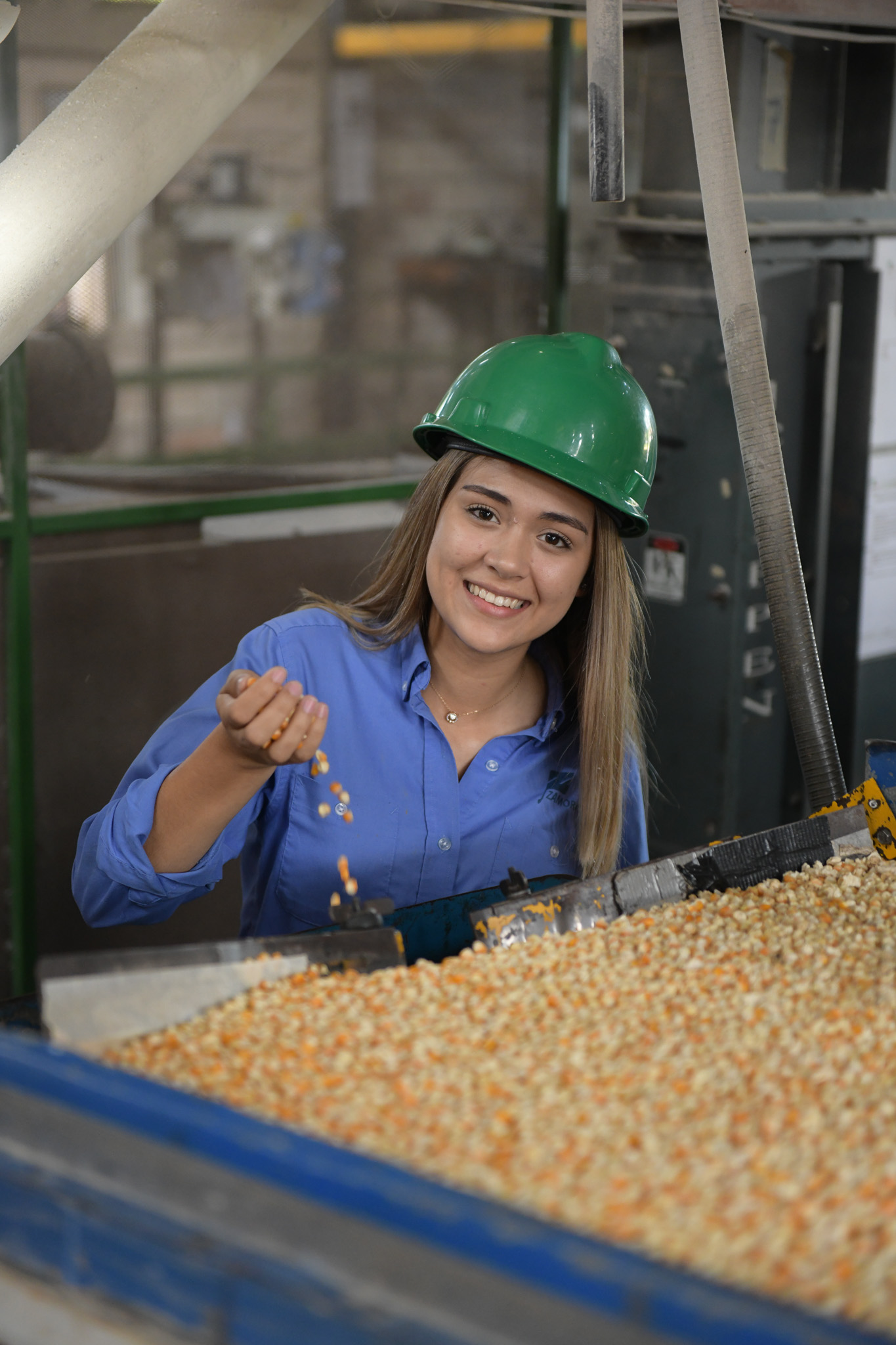
Module: Concentrated Food Plant
Description and general objective of the module:
In this production module, the student is taught the importance of producing good quality balanced foods, using safety equipment to minimize accidents in the plant. In addition, at the beginning of the module, students are divided into subgroups that will be in charge of carrying out the following activities: grinding grains, weighing macro and micro raw materials, mixing food, packaging final product, internal deliveries, quality analysis and cleaning of the areas.
At the end of the module, the student will be able to identify each of the raw materials used to prepare balanced foods, and will also be able to solve problems of grinding efficiencies, molasses pump calibration, and will be aware of the degree of responsibility of working. in a Food Plant Concentrated.
- Apply the principles and regulations of Hygiene and Safety to carry out daily activities safely within the Concentrate Plant.
- Prepare quality balanced foods for different internal and external production lines from raw materials and agroindustrial by products.
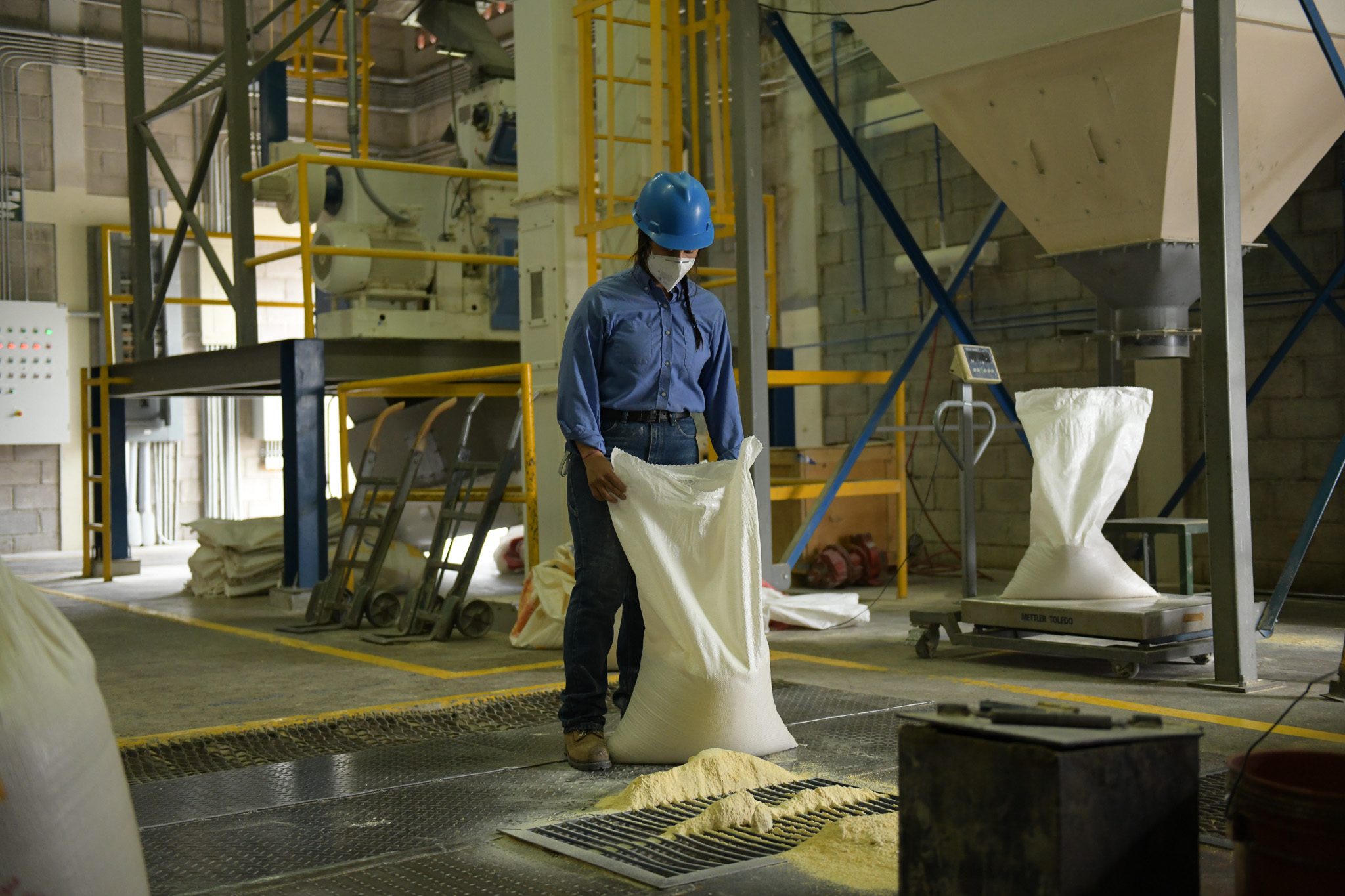
Module: Grain and Seed Production
Description and general objective of the module:
The Grain and Seed Production Module allows students to learn and combine the experience of theoretical learning with practical experiences in the different activities that they carry out in the field or production area of Learning by Doing. The activities that students carry out are focused on relevant aspects of extensive crop production, such as population densities per crop, sowing, germination, stages of development and harvest.
At the end of the module, the student will be able to work with different crops, applying comprehensive management.
- Correctly use the tools and equipment that allow adequate maintenance of crops for efficient and sustainable production.
- Learn about the different processes and agronomic activities that are carried out during the growth and development of crops to achieve optimal densities and efficient production.
- Carry out the harvest or collection of grains from the different field crops of the module in the appropriate time considering the optimal parameters to obtain quality seeds.
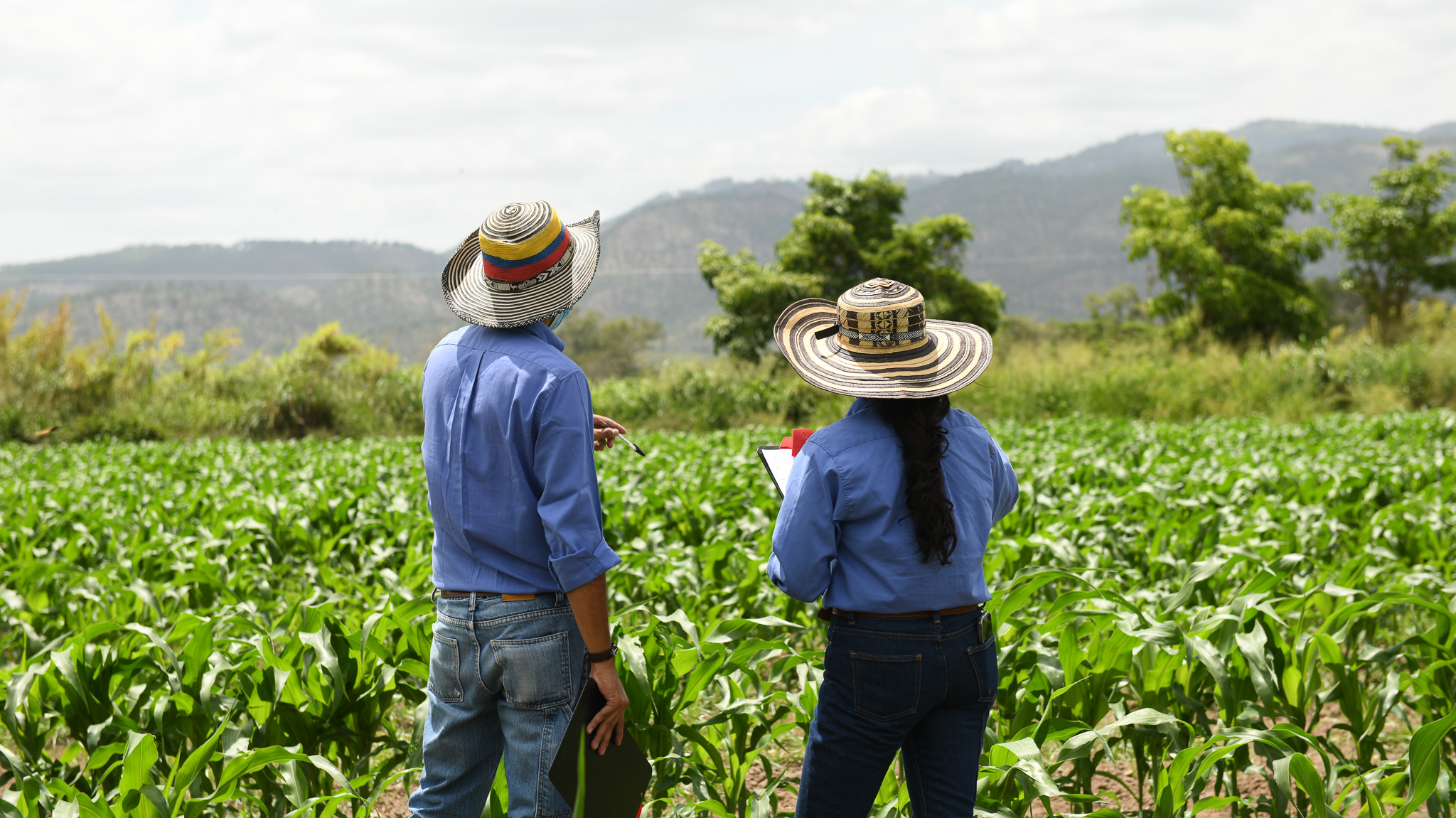
Module: Irrigation and Drainage
Description and general objective of the module:
The Irrigation and Drainage Module provides the student with the basic knowledge and tools necessary to achieve correct administration and application of water to crops, taking into account the water requirement of the crop and the weather conditions of the planted area. This module provides the basis of knowledge of the creation and maintenance of agricultural drainage taking into account the conditions of the planted area. With the aim of eliminating excess water from the system and preventing losses in production due to waterlogging and diseases.
At the end of the module, the student will be able to identify the water need, design irrigation systems and apply the amounts of water necessary for the crop.
- Gauge a water source, using the direct and indirect method to know the flow over time, determining an area to irrigate considering the principles of sustainability, resilience and the environment.
- Explain the operation of the basic components of an irrigation system through an installation that guarantees optimal operation in various conditions.
- Estimate the water demand of a crop to guarantee adequate management of water resources, considering the principles of sustainability and resilience.
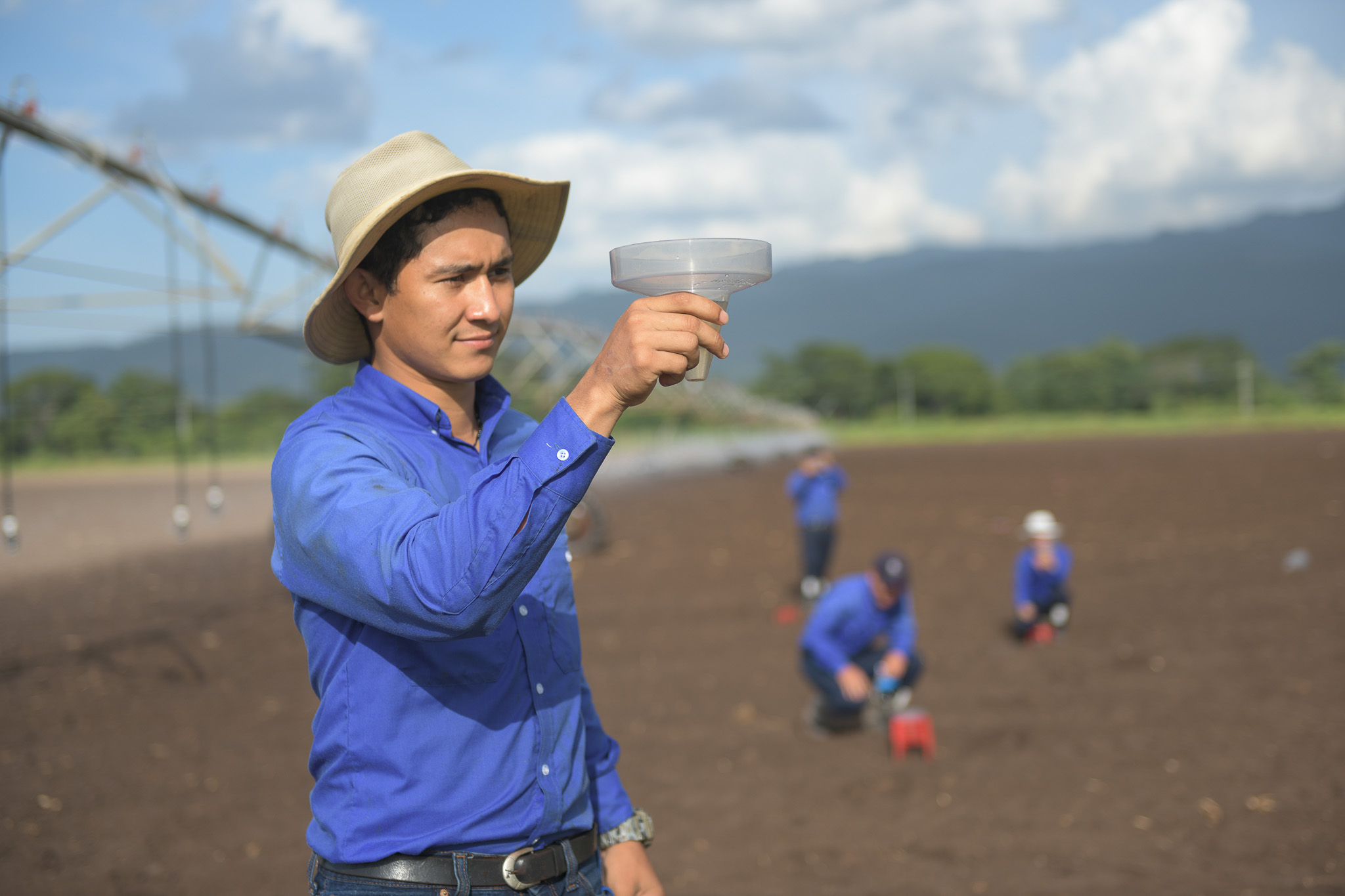
Module: Farm Equipment
Description and general objective of the module:
The module offers, through a practical methodology, the knowledge bases for the operation of an agricultural tractor and the necessary implements for the development of the tasks of an agricultural operation, including: the main components, the applications for which they were designed , safe operation, limitations, proper preventive maintenance and calibration.
At the end of the module, the student will be able to apply basic knowledge and concepts on the management and use of tractors and agricultural mechanization implements, with the aim of maximizing the use of resources to obtain a profitable and efficient operation.
- Basic operation of an agricultural tractor following safety regulations to prevent accidents during the development of agricultural activities.
- Practice preventive maintenance and calibration of tractors and agricultural implements, applying the use criteria according to the present environmental conditions to preserve the useful life of the equipment and avoid degradation of resources.
- Monitor the quality and impact of an agricultural mechanization activity considering the criteria studied in sustainable agricultural production models.
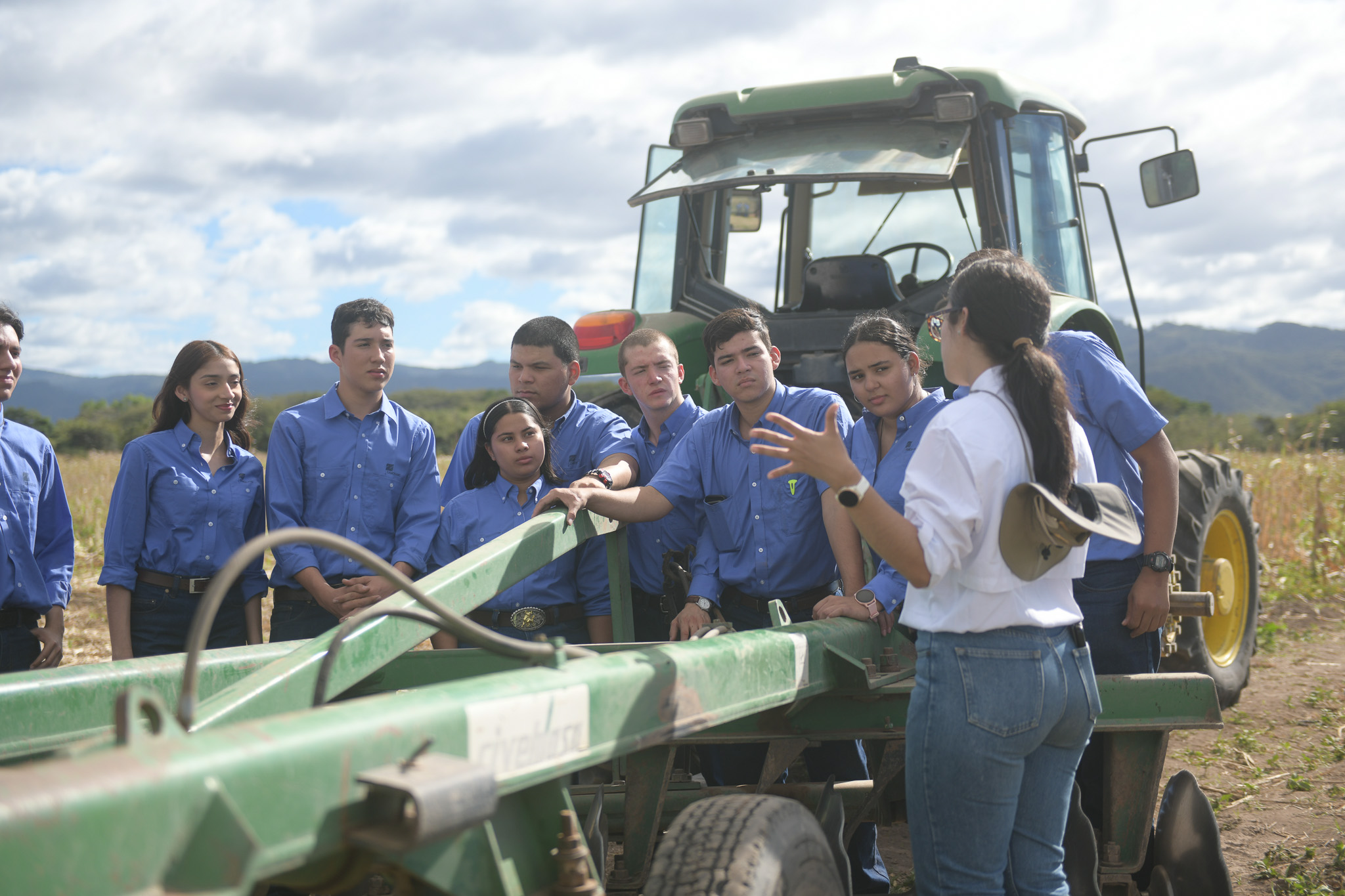
Module: Fruit Trees
Description and general objective of the module:
In this module, students learn the management of fruit crops, especially citrus fruits, mango, banana, passion fruit, coffee, papaya, table guava, among others. The learning focus is the technical production of fruits considering the agro-climatic conditions of tropical areas, as well as other environmental factors. The learning process includes the development of technical activities técnicas en n a variety of Zamorano fruit plantations including: lemon, orange, mandarin, mango, banana, papaya, renewed coffee plantations and other fruits from various regions of Latin America. Additionally, the management of fruit trees with great potential to be marketed in the region, such as Thai guava, papaya, passion fruit.
At the end of the module, the student will be able to apply the technical principles of proper pruning management, proper irrigation techniques, rejuvenation of old plantations, types of harvest according to season of the year, ripening times and management ofposfruit harvest. pos cosecha de frutales.
- Apply staking techniques to establish fruit orchards and maximize productivity in a comprehensive manner.
- Identify 10 fruit species of economic importance considering sustainability principles to contribute to food security.
- Calculate the fertilization of fruit crops to contribute to sufficient and nutritious food using critical thinking.
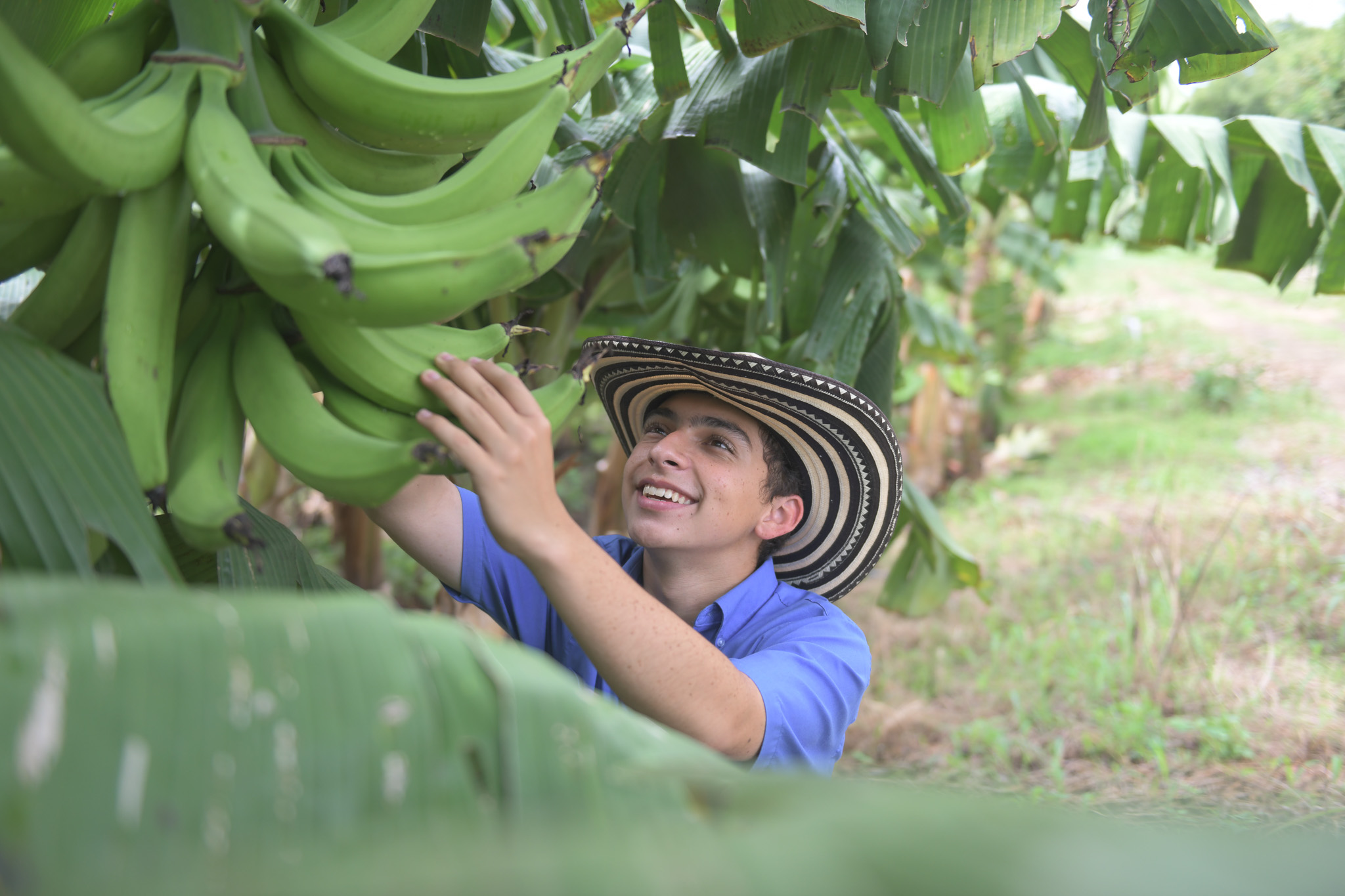
Module: Nurseries and Forest Plantations
Description and general objective of the module:
This module provides students with the opportunity to develop skills for the establishment and maintenance of nurseries and forest plantations and to delve into the knowledge of concepts, classifications, identification of areas (sites), and cultural management practices in general of forest plantations. After introducing a conceptual framework, students participate in field activities that link theory with practice through the application of learning, thus developing decision-making capacity.
At the end of the module, the student will be able to plan and quantify the costs of plant production in a forest nursery and use appropriate techniques and procedures for the establishment and management of a forest plantation depending on its final objective.
- Apply the appropriate techniques and procedures for the production of plants in forest nurseries
- Use the fundamental elements for the establishment of a forest plantation.
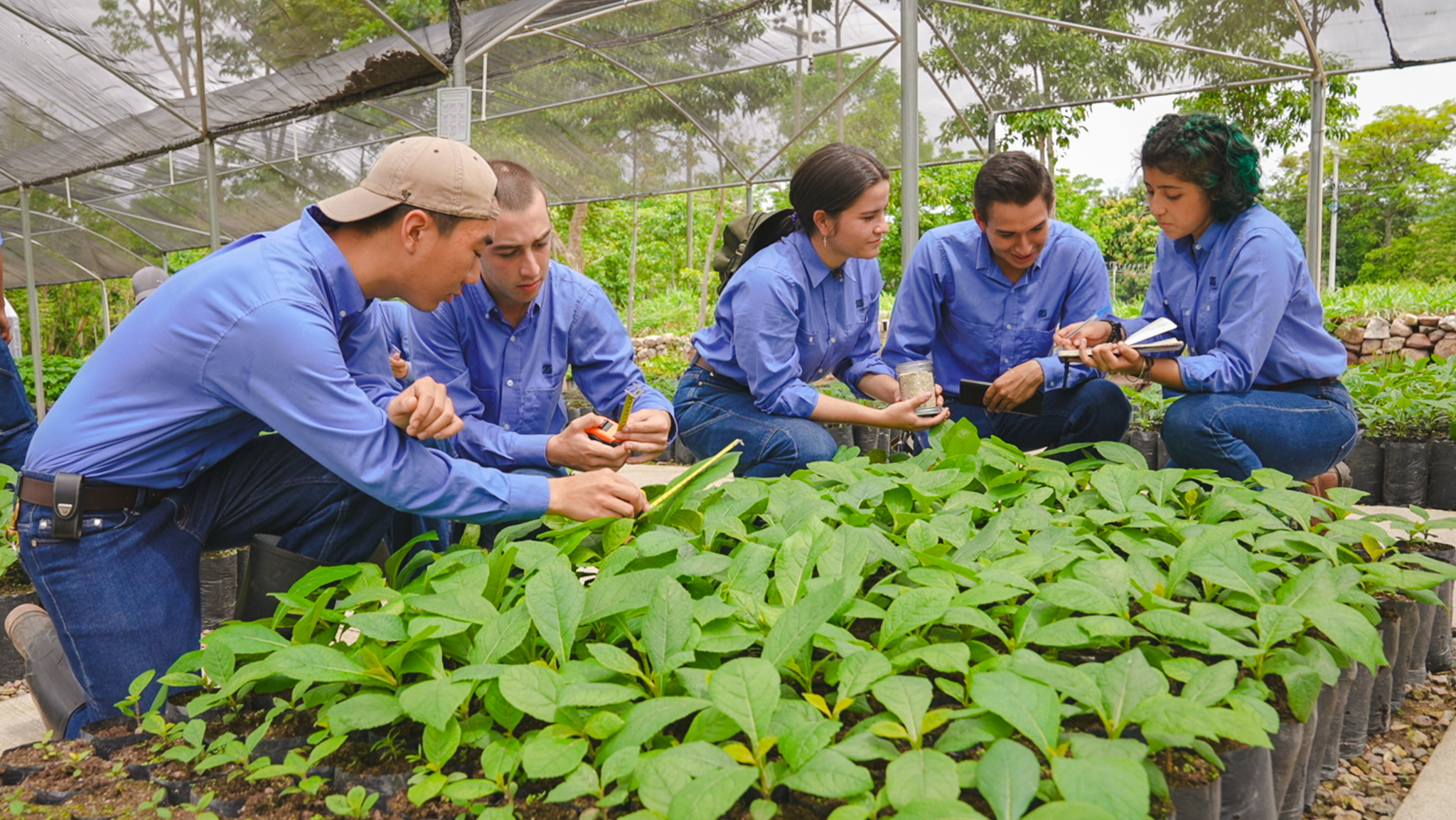
Module: Soil Conservation and Management
Description and general objective of the module:
The Soil Conservation and Management module develops in students the skillsto analyze the physical characteristics of the soil such as: texture, structure, color, resistance to penetration and porosity, for the timely application of the best management and conservation practices. This module also offers the bases to learn the techniques for taking representative soil samples for chemical analysis, the principles of erosion and soil conservation techniques on hillsides. Additionally, the student will have the opportunity to carry out various collaborative work activities that will allow them to identify and recognize the importance of applying soil conservation practices, as well as propose and design some of them.
At the end of the module, the studentwill be able to recognizesoil properties, principles of erosion, conservation techniques and the importance of soil conservation practices in slope and its efficient use.
- Analyze soil characteristics related to soil conservation practices, to achieve adequate use of it within the framework of sustainable agriculture. <p>
- Explain soil conservation techniques to provide solutions to problems related to soil degradation (mostly erosion) using critical thinking.
- Describe the basic principles of soil in a pit in order to provide agronomic recommendations.
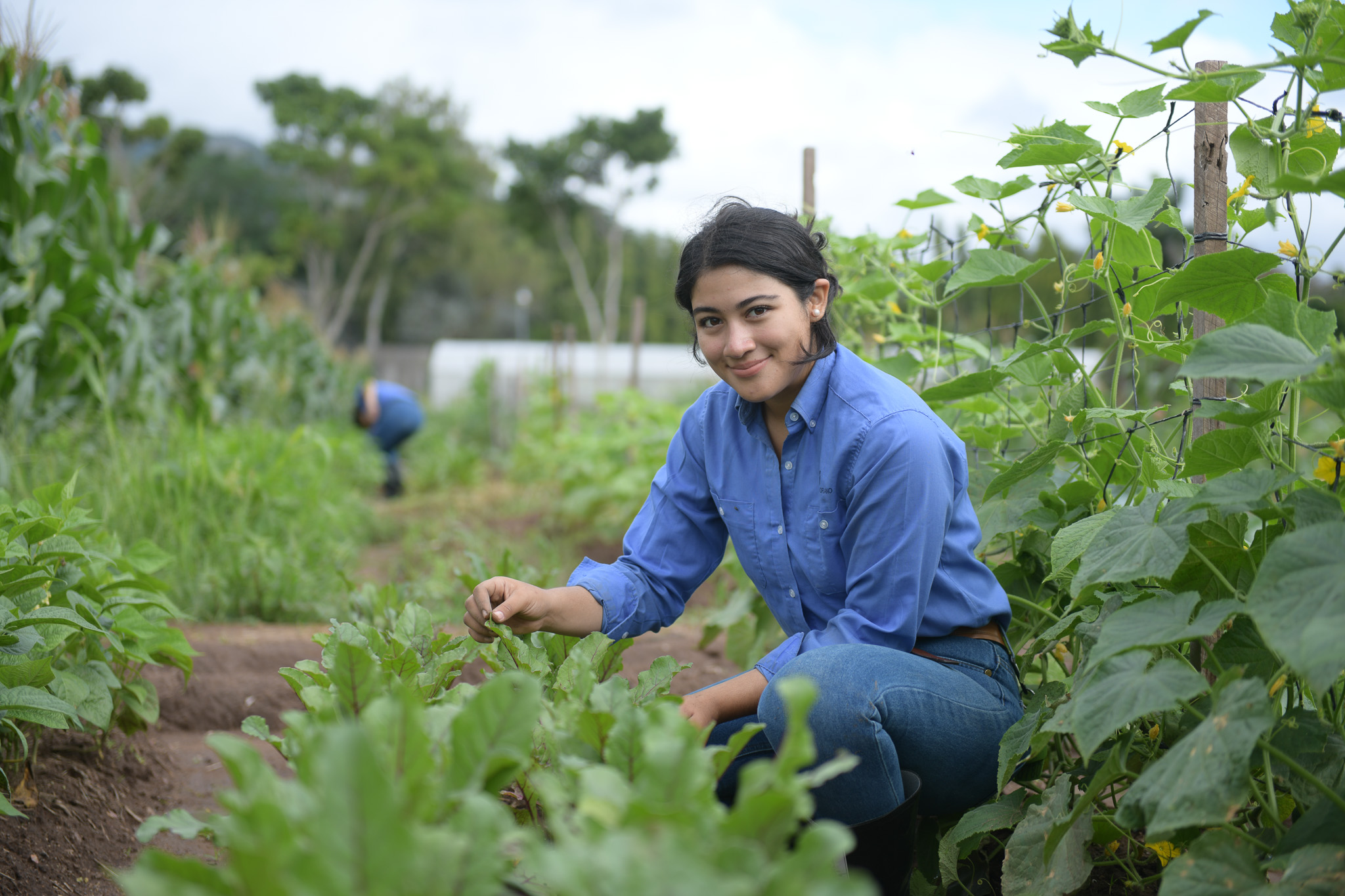
Module: Processing of Grains for Human Consumption
Description and general objective of the module:
In this module, students actively participate in the development of new products based on various grains and to do so, they carry out various individual activities and in collaborative teams, such as practices in the plant, productive activities and research, which promote innovation and student creativity.
The general objective of this module is to apply the technical-scientific principles on the processing of products from different grains, considering the assurance of quality and safety.
- Apply the basic principles and practices of cleaning and sanitation in the different areas of the Food Innovation Plant to ensure that products are produced under appropriate sanitary conditions.
- Apply production processes and quality controls in the process and finished products in the production of various grain-based products.
- Demonstrate the ability to use technical language to communicate orally and in writing in different contexts of learning by doing.
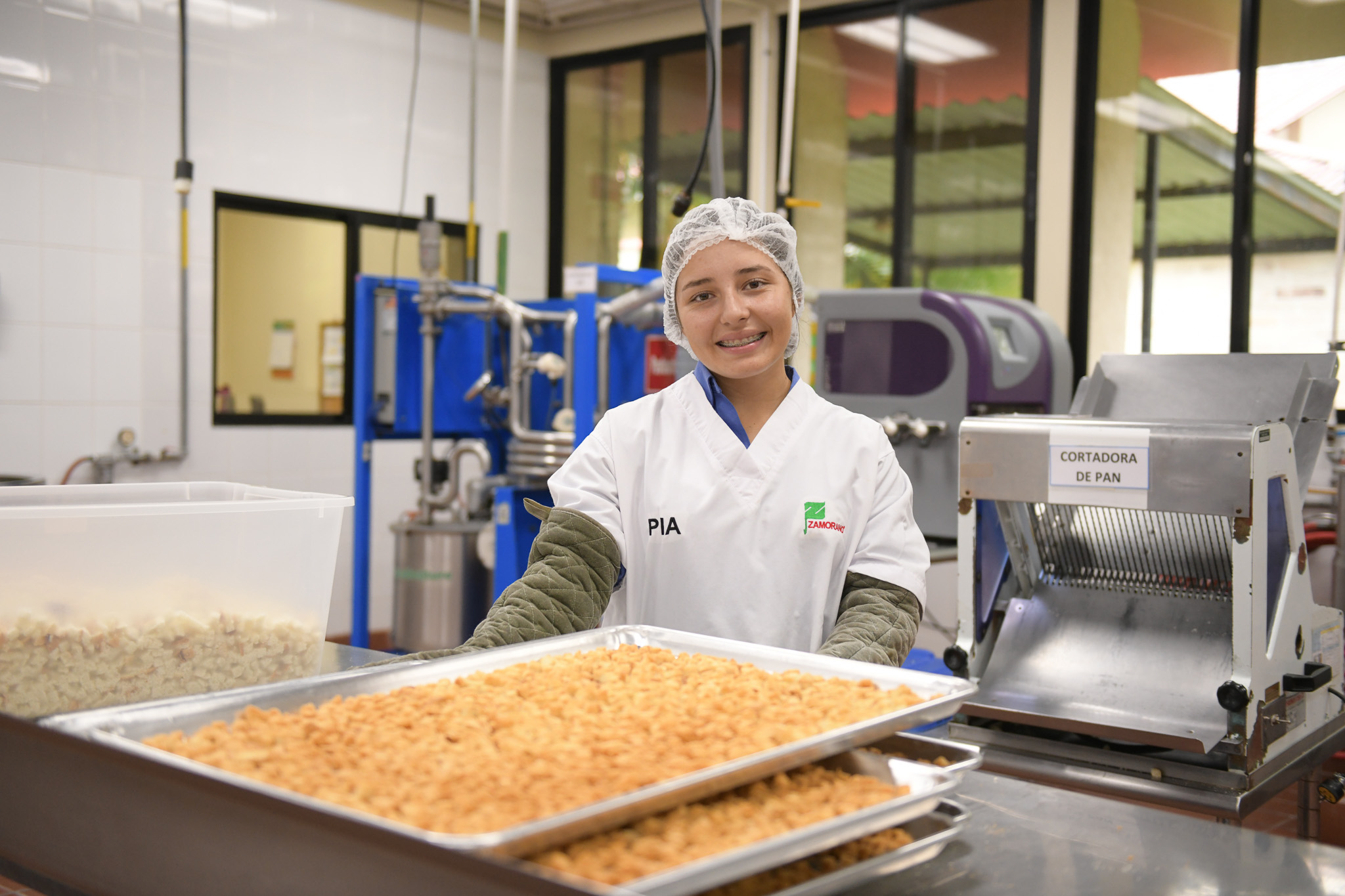
See all modules
Learn about the admission process
- Contact an admissions counselor
- Register and create your applicant profile
- Complete the online admissions test
